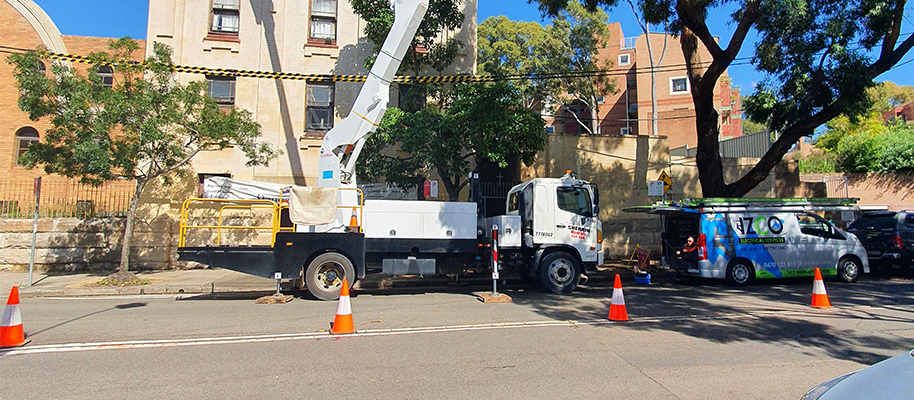When faced with electrical problems, many homeowners assume that all electricians can handle every type of electrical work. However, not all electrical issues are created equal. Some tasks require more specialised skills and certifications; it is where a Level 2 service provider comes in. Understanding the difference between standard and Level 2 electrical work will help you determine when to call a regular electrician versus when you need a level 2 electrician with advanced qualifications.
Here, we will discuss their distinctions and benefits of hiring a Level 2 electrician for your complex electrical needs.
What Does Standard Electrical Work Involve?
Standard electrical work typically includes routine tasks such as installing lighting fixtures, power outlets, and switchboards. This work is performed by electricians qualified to handle low-voltage systems. These electricians can also conduct safety tests on existing wiring, ensuring everything complies with building codes and regulations. Most residential or commercial properties rely on this electrical service for day-to-day maintenance.
Electricians handling standard electrical work can manage low-risk, low-voltage tasks. They can work on systems that pose minimal safety hazards and are certified after completing the necessary qualifications to perform these jobs.
What Makes Level 2 Electrical Work Different?
Level 2 electrical work goes beyond the routine services offered by a standard electrician. A Level 2 service provider can work on high-voltage electrical systems, making them essential for more complex and dangerous tasks. It includes handling underground or overhead power lines and managing connections between properties and the electricity grid. They can install, repair, and upgrade critical systems like electrical meters and mains connections. They are also the go-to professionals for tasks such as disconnecting or reconnecting your property to the main power supply. Because of the high risks involved in working with high-voltage systems, Level 2 electricians receive specialised training and licensing to ensure compliance with stringent safety regulations.
Why Understanding the Difference Matters?
Knowing the difference between a standard electrician and a Level 2 service provider is crucial when determining who to hire for a job. Choosing the wrong type of electrician can result in inefficient work, safety risks, and potentially higher costs in the long run. For instance, a 24-hour emergency electrician qualified at Level 2 is the only one who can address urgent issues like a loss of connection to the power grid or high-voltage faults.
It is paramount for property owners and landlords to be aware of when they need a Level 2 electrician. For any upgrades or changes involving your electrical connection to the grid, or if you need metering equipment installed or updated, a Level 2 electrician is essential.
Benefits of Engaging a Level 2 Electrician
Hiring a Level 2 electrician offers several advantages, especially when dealing with more intricate electrical systems.
- Level 2 electricians have the knowledge and tools to handle high-voltage situations safely. Whether for your home or business, they can diagnose and resolve electrical issues that regular electricians may not have the training to manage.
- Another significant advantage is the peace of mind you get from knowing your electrical work complies with local safety standards and regulations.
- If your property requires an electrical system upgrade, a Level 2 electrician can evaluate the electrical wiring and make updates to ensure everything meets current safety codes.
- Furthermore, if you ever find yourself in an emergency, such as a power outage due to a disconnection from the grid, a 24-hour electrical service provided by a Level 2 electrician is indispensable.
When Should You Call a Normal Electrician/ Level 2 Electrician?
Understanding when to call a standard electrician versus a Level 2 electrician is crucial for your safety and budget.
- Standard electricians are suited for low-voltage electrical tasks like installing new lighting or fixing a faulty switch.
- If you’re dealing with high-voltage issues, such as connecting your property to the power grid or upgrading your mains power, you’ll need a qualified Level 2 electrician.
- In an emergency, such as a power failure that requires immediate attention, it’s essential to have access to a 24-hour emergency electrician who specialises in Level 2 electrical work. It ensures your issue is resolved efficiently and safely without compromising your property or the people within it.
Final Words
Understanding the difference between standard electrical work and Level 2 electrical services is vital when addressing electrical issues in your home or business. While standard electricians can manage most everyday tasks, complex jobs involving high-voltage systems and connections to the power grid require a Level 2 service provider. Whether you need a 24-hour emergency electrician or are upgrading your electrical system, hiring a Level 2 electrician ensures the job is safely dealt with, efficiently, and in compliance with all relevant regulations. Don’t take chances with your electrical work; hire the right electrical professional.






